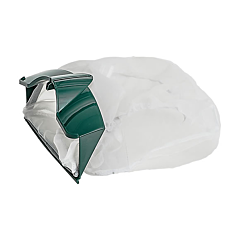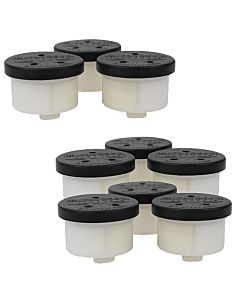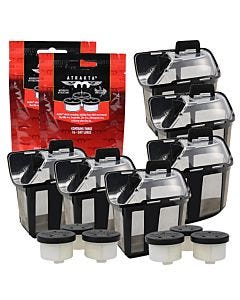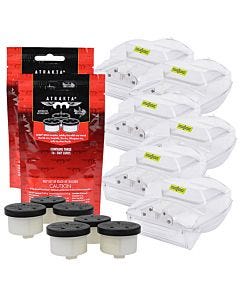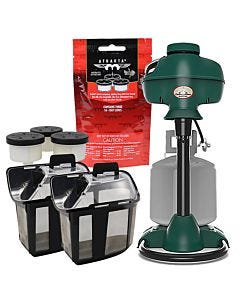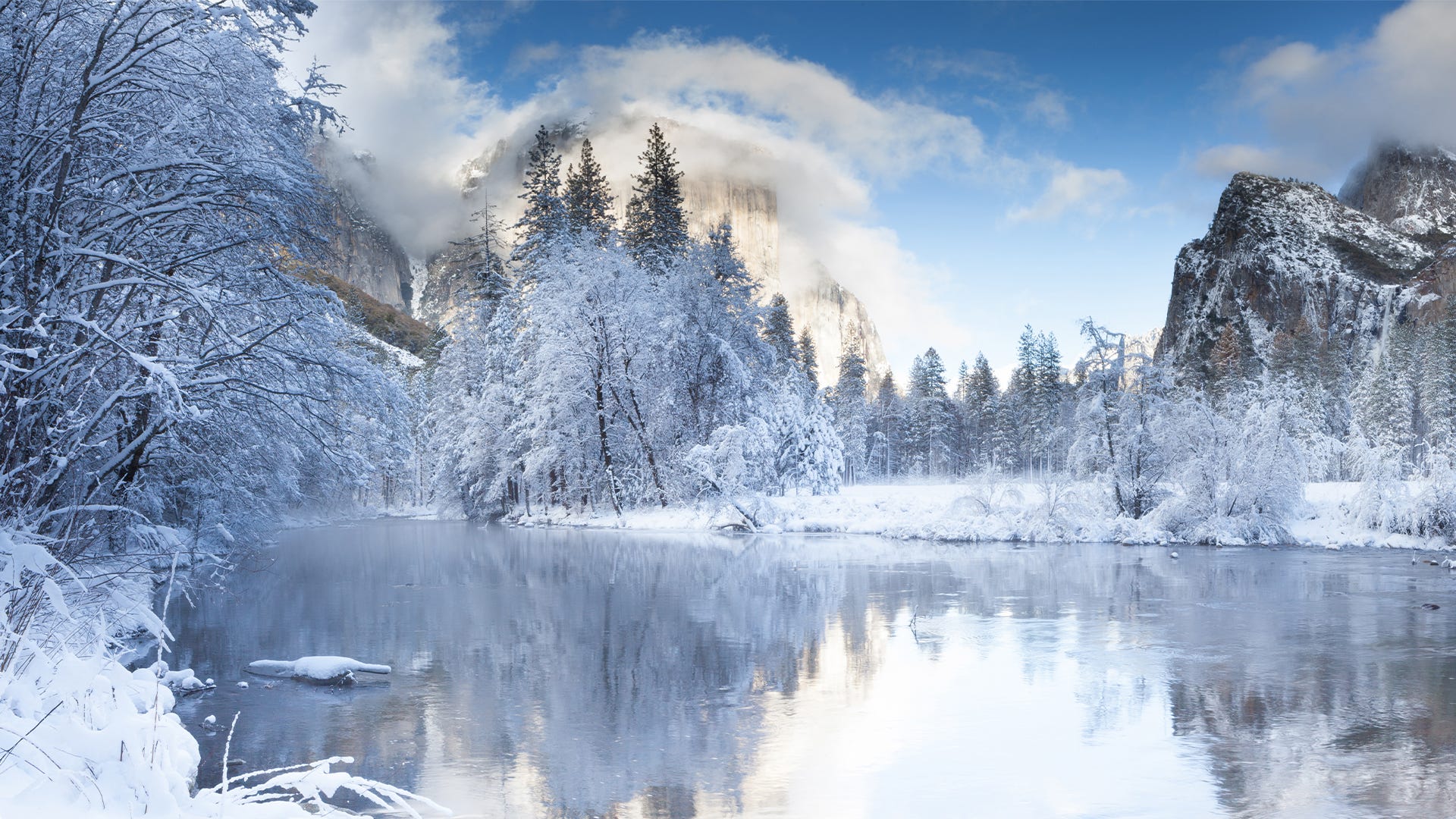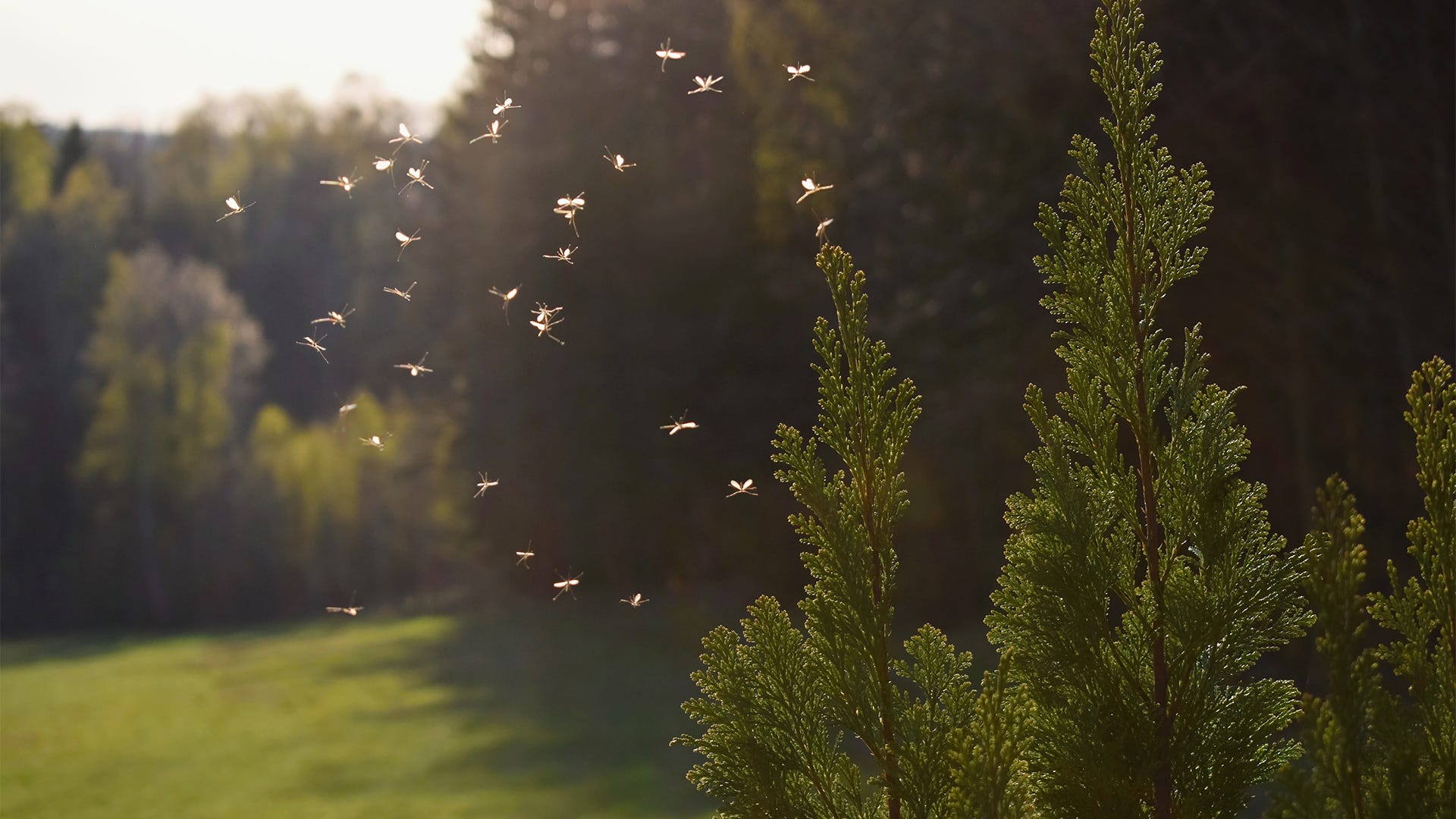
If you’re like most people, you probably don’t give much thought to mosquitoes – until you get a red, itchy welt on your skin that is a sure sign of a mosquito bite. While mosquito season is usually associated with the hotter summer months, it actually begins much earlier and extends well into autumn.
Protect Your Home And Business With Our Mosquito Magnet® Traps
Quick-fix mosquito solutions that only last a few weeks won’t get the job done. Any mosquito control program you choose needs to be implemented on a long-term basis in order to provide effective, lasting protection throughout the mosquito season.
In this article we will cover the topics below and help you prepare for mosquito season in your area.
Protect Your Home And Business With A Mosquito Trap
Why Should You Be Concerned About Mosquito Season?
There’s no doubt that mosquitoes are an annoyance. There’s nothing like a swarm of pesky mosquitoes to ruin a fun evening on the deck or patio with your family or to send your barbecue guests running for cover. But some of the 176 known mosquito species in the United States can also pose a health hazard to people and animals. Examples of potentially serious mosquito-borne diseases include eastern equine encephalitis and West Nile virus, which in severe cases can result in brain damage and even death. In 2014, the first cases of an affliction known as chikungunya — which can cause fever, rash, severe joint pain and other health issues — were reported in the U.S.
When Does Mosquito Season Start
Depending on the species, some mosquitoes hibernate during the winter and re-emerge when the weather begins to get warmer, while others hatch from previously laid eggs in the spring. The temperature plays a key factor in determining the actual start of the mosquito season. Generally, mosquito activity will begin when the temperature reaches the 50° F level. Mosquitoes thrive on hot weather. Thus, as the temperature begins to rise, the mosquito volume increases accordingly. The mosquito season reaches its peak during the hot summer months.
When Does Mosquito Season End?
When is mosquito season over? Again, temperature plays an important factor. As the weather begins to cool, you’ll likely notice a decrease in the level of mosquito activity on your property. Non-hibernating mosquitoes will begin to die off as the temperature approaches the 50° F mark, while the hibernating species will start to seek winter refuge in hollow logs, abandoned animal burrows and other convenient hiding spots. The first frost is usually a reliable sign of the end of mosquito season. However, it’s possible that some hibernating mosquitoes will emerge during unexpected warm spells during winter, only to return to their hiding places when the temperature drops.
Mosquito Season Varies by Region
Since mosquito activity is so closely linked to temperature, the actual mosquito season can vary greatly from one region to another — and even from one year to the next. As you might expect, the warmer the climate, the earlier the mosquito season starts and the longer it’s likely to last. While residents in some areas of the U.S. may not see the first mosquito until May or June, others will have to start dealing with the flying pests as early as February. In the extreme South and Hawaii, mosquito season has been known to last throughout the year!
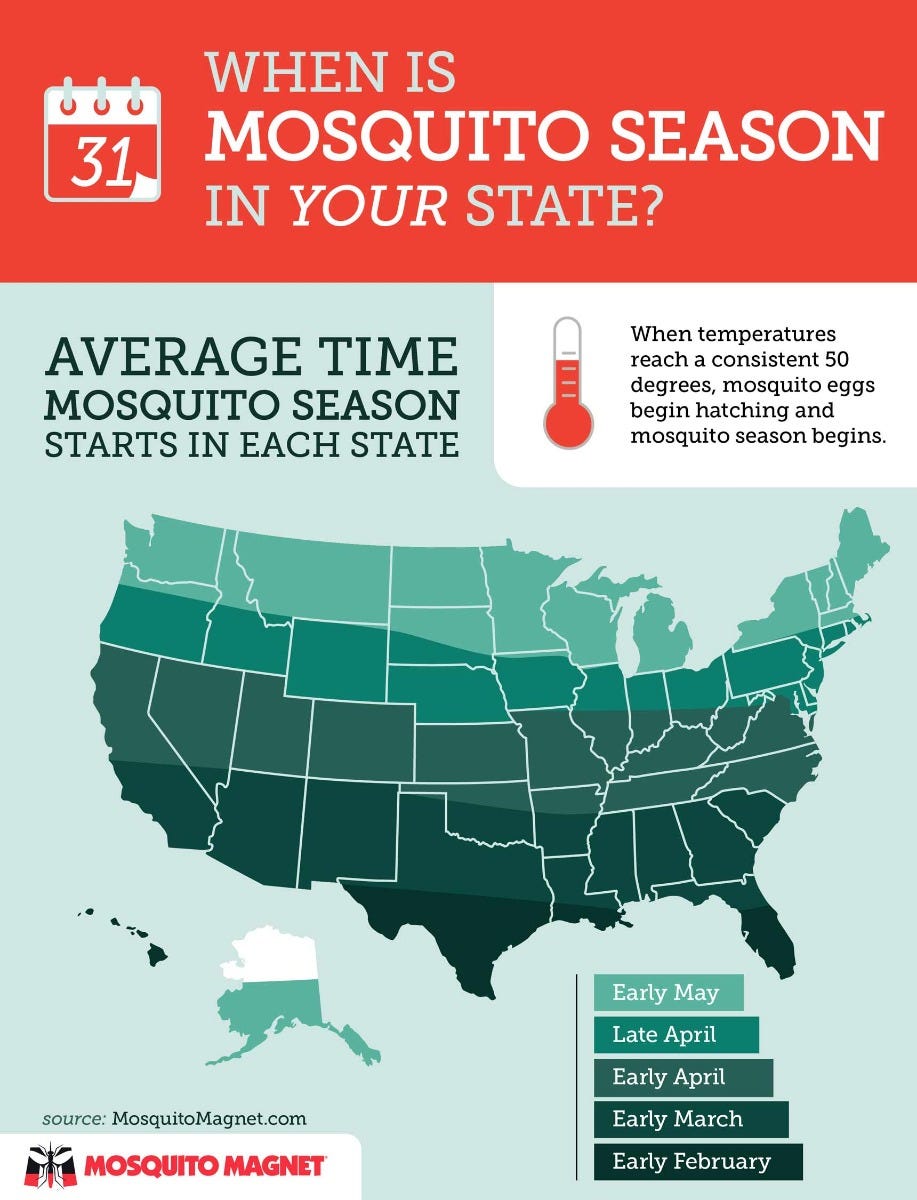
As far as other warmer regions in the U.S., the mosquito season in Arizona typically begins in early March. The mosquito season in Florida will vary depending on which part of the state you’re located in. The cooler northern portion normally doesn’t begin to experience mosquito activity until early March, while South Florida may see mosquitoes in early February. The tropical South Florida climate is especially conducive to the mosquito lifestyle since mosquitoes are attracted to moisture and humidity for breeding and laying eggs.
In contrast, the mosquito season in Alaska is notoriously brief. While the mosquito season in southern Alaska generally starts in early May, it might begin as late as mid-June in the northern regions of the state and end by late July. In the Northeast, the gradual warming trend that has occurred in recent years has also produced a longer mosquito season. Use our mosquito population map to get an idea of the expected beginning of mosquito season on a regional basis.
Prepare Before Mosquito Season Arrives
Many property and business owners wait until they see a swarm of mosquitoes – or until they have been bitten – to begin the mosquito control process. However, by this time, the breeding population has been established. The actual preparation for mosquito season should begin much earlier before the mosquitoes have had the chance to propagate. Remember, as the weather warms, the mosquito breeding cycle time shortens, which ultimately results in an increase in the number of mosquitoes on your property or around your business. This means you’ll want to get started while the weather is chilly – before the temperature consistently reaches that magical 50° F plateau.
Start by Mosquito-Proofing Your Property
It’s never too early to begin the process of creating a mosquito-proof property. Take steps to make your yard less inviting to mosquitoes, and make sure they don’t have easy access to the inside of your home:

Remove any objects that collect water — Take an inventory of your yard and remove anything that could hold standing water, since these objects can serve as primary mosquito breeding grounds. Mosquitoes require only a small amount of water for depositing their eggs, so don’t overlook any potential water collection vessel. Flower pots, birdfeeders, old tires, wheelbarrows, and buckets are just a few examples of favorite mosquito habitats.

Clean clogged gutters — Gutters tend to become clogged with leaves and other debris during the course of a long winter. Flooded roof gutters and clogged drainage systems create standing water that attracts mosquitoes in droves. It will be worth your time to get the ladder out on the first relatively warm day (after all the snow and ice has melted) and give your gutters a good cleaning.

Fill in low-lying areas — Ditches and other low-lying areas also collect standing water after a rainfall. After the snow melts, survey your property for these potential trouble spots and fill them in wherever possible.

Fill in hollow logs — By filling in or removing any hollow logs and stumps on your property, you’ll eliminate another standing water source while also removing a potential habitat for hibernating mosquitoes in the winters to come.

Repair damaged or ineffective window screens — Repair your window screens before you install them for the warmer weather. Tiny mosquitoes can find their way into your home through the smallest tear in your screens. Consider replacing worn screens or ones with openings that are too large to keep mosquitoes out. A 16-18 mesh is the recommended size for pest control purposes. If you have a screened-in deck, porch or patio, check the screen condition on this as well.

Repair cracks and leaks — Cracks in your home’s foundation and exterior walls can provide an easy entry for mosquitoes, so be sure to seal any that you find. Also, repair any leaks that could create pools of water.

Install bug lights — Installing yellow outdoor bug lights won’t necessarily keep mosquitoes away, but it will make your property somewhat less attractive during the nighttime hours.
For more information on protecting your yard, check out of backyard mosquito control guide.
In-Season Mosquito Control Tips
While mosquito-proofing your home will go a long way toward preventing an infestation, it’s difficult to keep these relentless pests away for the entire season. You’re particularly susceptible if you live in a warmer region where the mosquito season is long and the bugs are plentiful. You’ll probably need to implement some or all of the following:
- Cover potential water-collecting objects when not in use — There may be some objects that you want or need to keep outdoors during the warmer months, such as boats and wading pools. Keep these items covered when you’re not using them, or overturn them to prevent mosquito access.
- Be vigilant after rainstorms — Summer rains can be refreshing and will keep your lawn and plants healthy. But rain also creates puddles and pools that are sure to attract mosquitoes. Patrol your property after every rainfall and take action to dry these wet areas whenever possible.
- Keep your swimming pool clean — Mosquitoes will generally stay away from well-maintained swimming pools. However, if you don’t use your pool for an extended period of time or fail to keep it clean, they’ll likely be drawn to the stagnating water. If you cover your pool, the plastic sheet will collect rainwater. If your pool remains unused and covered for extended time frames, dump off any accumulated water.
- Mosquito repellents — There are a number of commercially available mosquito repellent products you can use in an effort to deter mosquitoes. Citronella candles can sometimes work well in smaller, confined areas. Other options include sprays, coils, and bug zappers. These products can provide varying levels of success, so it may require a bit of trial and error to find the ones that work best on your property.
- Personal mosquito protection — If you live in a region that is prone to mosquito outbreaks, you’ll want to protect yourself while you’re outdoors. Cover as much of your body as possible with light-colored clothing, and apply a DEET-based mosquito repellent on exposed skin. Try to avoid going outdoors during the early morning hours or at dusk, which is the peak mosquito times.
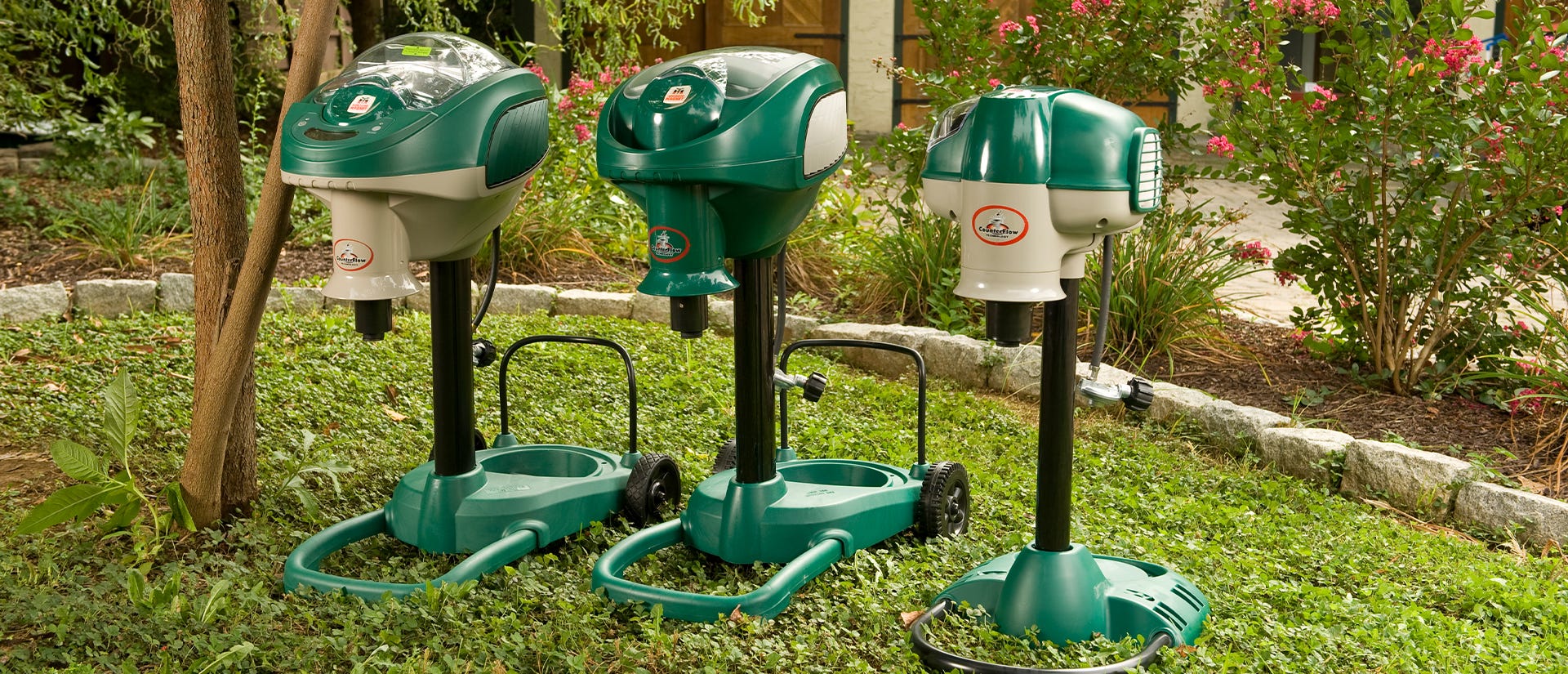
Use Traps to Control Mosquitoes Throughout the Season
All of these methods can be extremely beneficial in helping you control mosquitoes and keeping them away from your property. Unfortunately, none of these options will do anything to reduce the mosquito population. Mosquitoes are prolific breeders, especially during peak mosquito season. The best way to get rid of mosquitoes is to disrupt their breeding cycle. That’s where an effective CO2 mosquito trap can be the biggest ally in your ongoing fight against these swarming, bloodsucking pests. A Mosquito Magnet® trap will help you create a mosquito-free property from the beginning of the season until the end.
Unlike other mosquito control methods, Mosquito Magnet® does not temporarily repel mosquitoes. Instead, it relies on the power of attraction to lure and kill mosquitoes. Continuous use of a Mosquito Magnet® trap throughout the mosquito season will disrupt their breeding cycle. Because fewer mosquitoes are breeding, you’ll see a dramatic reduction in the mosquito population on your property.
Shop Our Full Line of Mosquito Traps »
The Mosquito Magnet® Attraction Process
Have you ever wondered what makes humans so attractive to mosquitoes? Mosquitoes are naturally drawn to the warmth, moisture and carbon dioxide that is found in human breath. When you exhale, you’re unwittingly inviting mosquitoes to stop by for a snack. A Mosquito Magnet® trap emits a precise and steady stream of carbon dioxide, heat, and moisture that mimics human breath. When the mosquitoes are lured to the trap, the patented CounterFlow™ Technology works as a vacuum cleaner and sucks them inside. The mosquitoes then become entangled in a specially designed net, where they die of dehydration within 24 hours. Instead of repelling mosquitoes, you’re systematically capturing and killing them all season long.
Shop Mosquito Magnet® Attractants »
Start Using Your Trap at the Beginning of the Mosquito Season
It’s important to begin your mosquito control efforts as early as possible before the breeding cycle goes into full swing. You should start using your Mosquito Magnet® trap as soon as the temperature begins to rise above the 50° F level. This ensures you’ll be able to trap those newly emerging mosquitoes before they have a chance to meet up with their friends. Since the trap is designed for effective 24/7 operation, you’ll be able to keep trapping them as the mosquito system progresses. Here are a few examples of suggested trap starting times for a cross-section of U.S. states:
- Mosquito season in Maine: early May
- Mosquito season in Alaska: early May
- Mosquito season in California: early April in the north and early March in the south
- Mosquito season in Pennsylvania: late April
- Mosquito season in Florida: early March in the north and early February in the south
- Mosquito season in Arizona: early March
Maximize Trap Performance With a Secondary Attractant
Regardless of when the mosquito season starts in your area, you can increase your catch rate by as much as 10 times by using a secondary attractant. We offer EPA-registered attractants that are tailored to the types of mosquitoes that are most prevalent in specific regions:
- Octenol — Ideally suited for luring the Asian tiger mosquito found in coastal areas and the northern U.S. and Canada
- R-Octenol — An enhanced formulation of Octenol that lures most mosquito species found in coastal regions and the northern U.S.
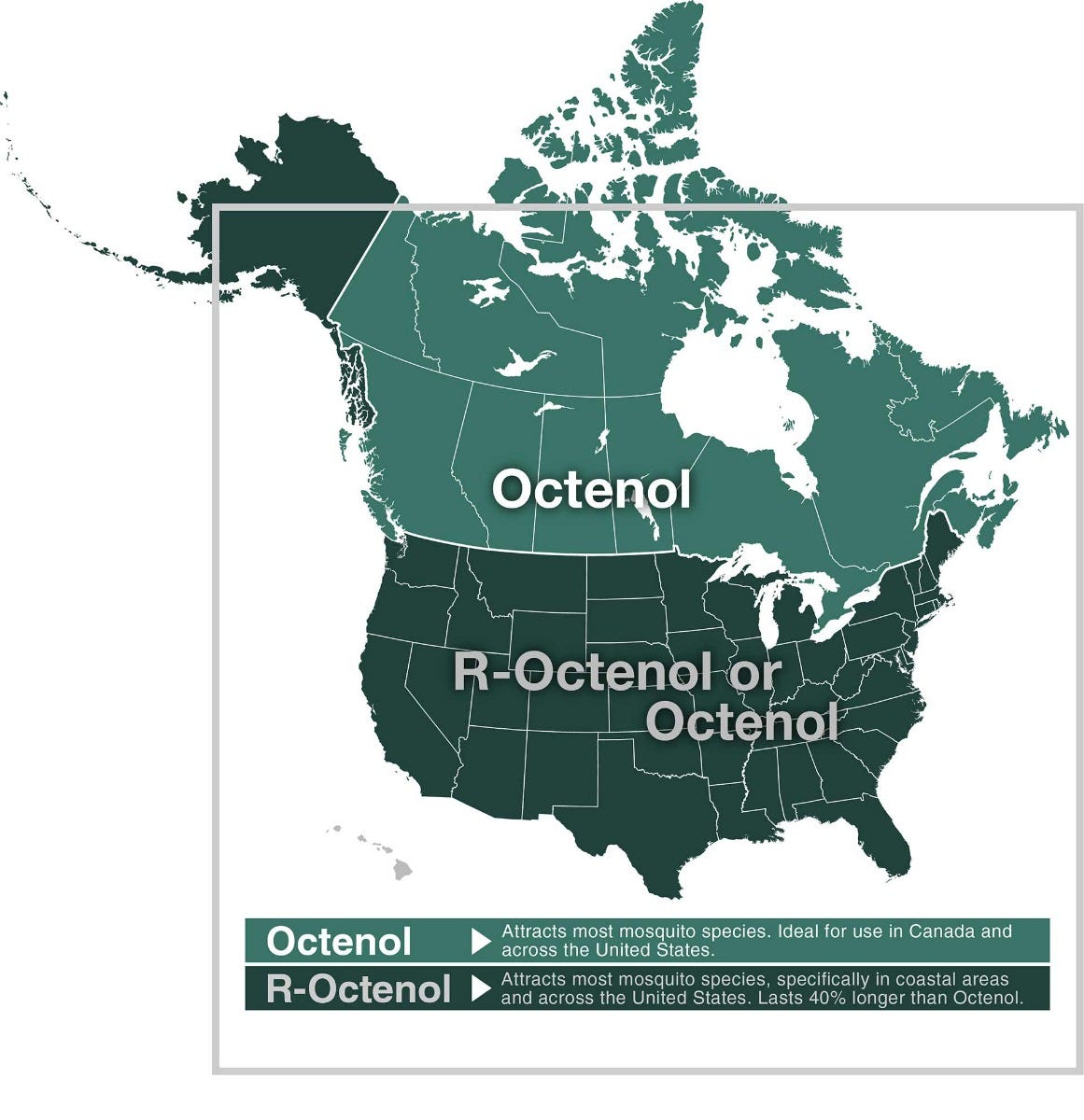
Be Ready for Mosquito Season – Whenever It Starts
When does mosquito season start? Whether the mosquitoes in your neck of the woods begin to make their presence known in February, June or anytime in between, a Mosquito Magnet® trap can provide the season-long protection you need to keep these uninvited guests away. When is mosquito season over? The beginning of the end for mosquitoes occurs when you start running your Mosquito Magnet® trap! Check out the complete lineup of Mosquito Magnet® traps and choose the one that best meets your mosquito control requirements.
Also, be sure to subscribe to the Mosquito Magnet® E-Newsletter for more tips on fighting the biting insects in your yard or around your business.

